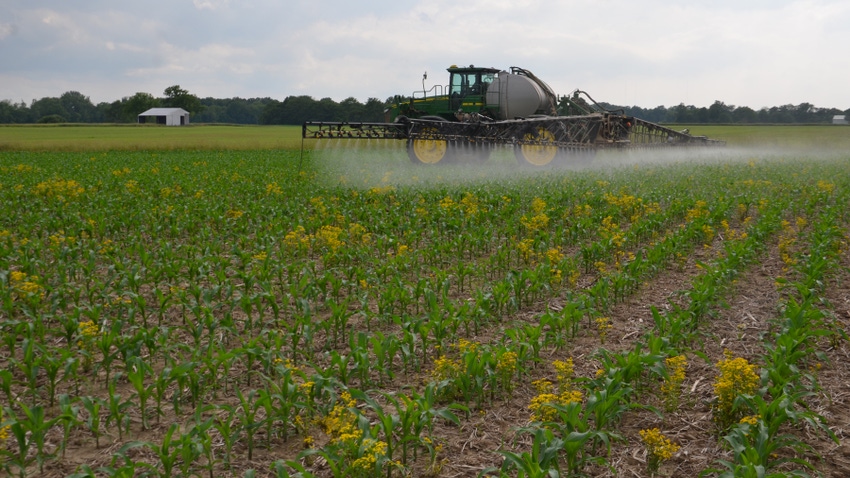
Rules for buying, handling and applying restricted-use pesticides in Indiana are set by the Indiana Pesticide Review Board. However, they must comply with federal regulations.
“We’ve been in the process of aligning Indiana’s rules so they comply with federal rules since 2017,” says Dave Scott, pesticide administrator with the Office of the Indiana State Chemist. “The governor signed off on updated rules in December 2022. We’re in the process of making sure everyone is aware of them.”
In fact, the regulatory topic covered at classes where credits are issued for maintaining private licenses this year relates to reviewing updates and rules regarding restricted-use pesticides.
Changes and updates
Here is a summary of basic changes. To view all rules and frequently asked questions, visit the OISC website.
Licensing. All restricted-use pesticide applications must be done by a fully certified applicator. Certification requirements for both commercial and private applicators did not change, Scott says. The big change relates to supervision. Before, if a person held a private pesticide applicator’s license, another person without a license could make the application under their supervision.
“That is no longer allowed,” Scott says. “There is no more supervision for private applicators. Everyone must have the license. Federal rules simply became too complex.”
Exam process. There will no longer be paper exams. Exams will be by appointment only, at Metro Institute training centers. However, if you already have a license, you can still maintain it by attending training sessions, as before. People who need a license for the first time need training and testing. Training help is available from Purdue Extension.
Label access. While it’s not a change per se, Scott emphasizes to growers that they must have access to pesticide labels at all times the product is used. An e-label qualifies. If asked by a regulatory person, you must be able to produce a label anytime you are required to have access to it.
Clarification for truck drivers. If a person simply drives the truck transporting restricted-use or general-use pesticides that aren’t open, or if they’re hauling a “hot load” prepared by a certified applicator, they do not need certification or a license. However, a certified private applicator must be present to open and mix products, or while a hot load is pumped into the spray rig.
Record keeping. Specific details about restricted-use pesticide applications must be recorded. One new requirement was added. “You now must also record start and stop times of the application,” Scott says. Records are required to be kept for two years. There are also new record-keeping requirements for those who sell restricted-use pesticides.
Civil penalty schedule. Enacted in 2021 and now in force, penalties for violating rules that can be assessed by OISC fall in three categories: $250, $500 and $1,000.
Dicamba use restrictions. Rulings by U.S. EPA led to adjustments in dicamba cutoff dates for ’23, Scott says. The cutoff for applying Engenia, Tavium and Xtendimax over the top in dicamba-tolerant soybeans is now June 12 or the V4 stage of soybean growth, whichever comes first. June 20 is still the cutoff date for all other dicamba applications in Indiana.
Read more about:
PesticideAbout the Author(s)
You May Also Like




